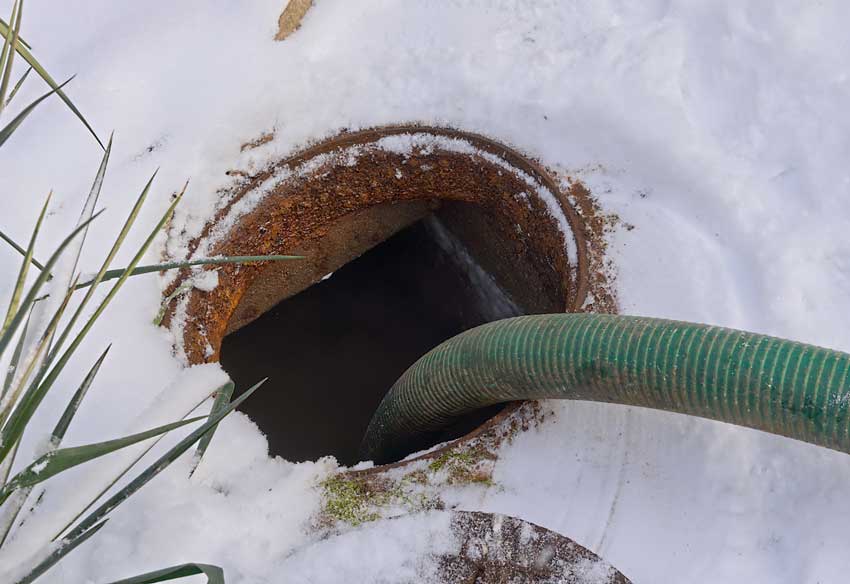
The Tri-State has already been through one round of polar vortex-induced plunging temperatures and a snow dump to boot. And it’s only February.
The list of infrastructure and structures to be worried about in such situations can be long: roads, bridges, roofs, windows, sheds, garages, barns, decks, gazebos, homes.
Believe it or not, one thing to add to that list is underground: your septic system. In particular, the pipe that carries wastewater from the house to the tank, the pipe from the tank to the drain field, and the drain field itself are all susceptible. The liquid inside the tank itself could even freeze, given temperatures cold enough for long enough.
As with any problem that could take your septic system out of commission, the danger to your home is waste either not being expelled or even washing back the wrong direction up a one-way street.
This problem is identifiable by appliances that use and then discard water not working, and drains being unable to carry water away.
The tough news about all this is that there is really nothing the property owner can do to solve this problem, other than calling professionals with specific equipment and expertise to handle it.
Instead, here is a list of things NOT to do in this situation in order to prevent a bad situation from quickly becoming much worse:
- Do not run hot water down your pipes to try to thaw the system.
- Do not put rock salt, antifreeze or other chemical compounds into the system.
- Do not start a fire or put a heater over top of the tank or pipes to try to thaw them.
- Do not let your sewage flow onto the ground above the system or otherwise come into contact with anything else that is avoidable.
Calling a specialist – such as those at Little’s Septic Services – is the best and by far safest and most effective way to deal with such a problem.

